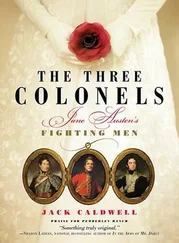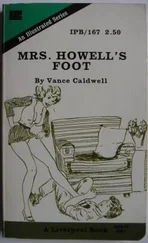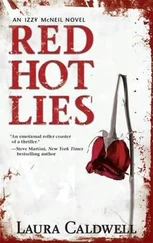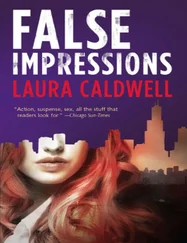She gave her call sign, then looked at her watch. She waited. And waited. Then a signal arrived.
38… 47… and… 41… 50… 9.20.39 X 55.
Herr Maurer saw her note the numbers down. Again their random nature played on her mind, but this was not the time to ask questions.
‘Finished?’
‘No, I must send the message to Berlin now.’
She sent the code with the message from America. She took off the headphones and coiled the wire, switched off the radio and closed the case. She took it to the bed and slipped it underneath, bringing the gazunder forward with its china lip just showing.
‘Very professional. You are a credit to the Reich.’
‘I thank you.’
Maurer’s eyes wandered behind her, as Inka came forward to rub her scent on his trousers.
‘That black box. It intrigues me. What is it?’ he asked, stroking Inka’s ears.
‘You mean my oboe?’
‘I see. You must be able to play it well, as you have brought it out here with you.’
‘That’s not for me to say, but I have played in public many times.’
‘Then perhaps your musical services would be appropriate at an embassy function sometime?’
His comment made her eyebrows rise. ‘Maybe they would. It would not be the first time I have played at an embassy,’ she said, regretting the words before she finished speaking.
‘Really?’ he enquired.
‘Well, not the embassy as such, but at soirées in the company of diplomats in Hamburg,’ she said, forbearing to mention that those musical evenings had taken place at the British Consul’s offices.
Maurer smiled smugly. He gathered his gloves and stood up. ‘Keep up the good work, Miss Campbell.’
‘I will.’
He reached into his pocket and took out a brown envelope. He left it on the table. She thanked him, assuming it was either further instructions or her pay.
‘Goodbye. We will meet again before long,’ he said as he turned towards the door.
‘Goodbye,’ she said, remembering not to raise her right arm in Portugal. His wave was equally perfunctory. Moments later the car drove off.
Inside the brown envelope was local currency, just what she needed for her daily journeys to the port. It was timely; the embassy in Lisbon had only given her a starter amount and it had almost gone.
Two days later she was still trying to figure out the significance of the numbers in the radio messages. She got nowhere, and instead wondered how to spend the afternoon. As she prepared a sandwich for an expedition to the beach, she turned on the radio and quietly tuned in to London. She learned that the SS Athenia had been sunk by U-boat U-30. The Deutschland pocket battleship and the Admiral Graf Spee had both been at sea when war was declared, and now they were attacking British and French ships. Meanwhile Britain’s blockade of Germany had begun, the newscaster reported.
He continued. On 14 thSeptember HMS Ark Royal had survived three attacks by faulty torpedoes which had exploded prematurely forcing U-39 to surface then scuttle, thus becoming the first U-boat loss of the war. Three days later HMS Courageous was sunk by U-29. The programme then changed to some poetry readings, and she switched it off.
The war was no longer a phoney war. It had started in earnest in the Atlantic. That same Atlantic she woke up to each morning. She looked out into the bay, wondering how close she was to the nearest U-boat. But there was no point in worrying about it; much better to behave as normally as possible. She set off to have a walk along the shore, and possibly a swim too.
This time she had a costume. Not a Berlin fashion item, but a simple patterned seersucker costume she had bought in the clothes shop on the seafront. She put it on before she set off to the beach. As usual, going down the zigzag path required concentration on every step. If she tripped and plummeted to the bottom, it would undoubtedly have been fatal.
Soon she was on the deserted shore once more. Many people said rather shamefacedly that they never visited beauty spots or historical gems in their own neighbourhood, and it was certainly true here in Peniche. The beach was on the townsfolk’s’ front doorsteps, but they did not sun worship or bathe in the Atlantic.
She laid out her towel and sat down with her hands clasped over her knees and her head nestled upon them. erHer Her hair was loose and flew behind her, allowing her forehead to absorb the sunshine. It seemed the Axis powers appreciated her although they left her very much alone, and she certainly had little understanding of what she was accomplishing for them. She let her mind drift off, a technique she had employed in the past when a knotty problem needed unravelling.
Then, all of a sudden, a chill spread through her from her ears right down to her sand-covered toes, and her heart began to pound audibly.
‘My God,’ she gasped, gripping her head in her hands. She began to tremble and nausea hit the back of her throat. The sinking of the SS Athenian . Had the message she passed to Berlin enabled the U-boats to home in on this supply ship? She tried hard to remember the numbers.
70 and 40 then 60 and 55. She divided, subtracted – and then it became so obvious. 70 degrees longitude; 40 latitude. 60 degrees longitude and 55 latitude. She knew Britain lay between 50 and 60 degrees latitude. The coordinates were sent to sink cargo ships coming with supplies from the Americas. The multiplication by 55 would be the number in the convoy, and the date would be when the ships would be at these points.
She was part of the Nazi war machine. It was time to cross over as soon as possible. However, how could she do this?
She returned to the cottage feeling very low. She was determined never to relay another message to Berlin. How could she ever face the widows of the men drowned on the SS Athenia ? But also, how long would it be before the German coders suspected the reasoning behind her radio silence?
She needed a plan and she had to make it quickly. She had to get out of Peniche, that much was clear, and in order to hide her tracks she would have to travel light. The nearest safe house would be the British Embassy in Lisbon, but to get there she would have to pass the seething nest of spies known to have gathered in Lisbon. Surely the German contingent would be watching who came and went from the British Embassy too. She would need to arrive in Lisbon before the embassy opened. She consulted a map of the city, which she had noticed in a small bookcase at the cottage. The British Embassy was located in the Rua de São Francisco Borja in the centre of the city near the sea.
She prepared a bag to take if she needed to leave in haste, but she would have to leave much behind as a decoy. Her oboe case filled the bottom of the bag. She could never be without that. She would wear as many clothes as she could.
Then a trickle of fear ran down her body; she was meant to be an author, for goodness sake; she had to leave something behind to support that alibi. There was clearly no time to write a book, but she made herself a cup of coffee and sat down to write a potential plot. She made notes, added words and crossed them out. On the folder she wrote First Draft and filled it with several blank pages; her outline was a Venn diagram with shoots of ideas spreading to the corners of the page. She called the novel My Destiny in the Highlands . She wondered if it could be a self-fulfilling dream. Perhaps back home she might continue the book as the story developed in her mind. By the time the coffee cup was empty she had enough to give the impression she had at least made a start on a book. Surely anyone who came across the folder would assume she was coming back; a real author would have taken it with her if she intended moving on. But that was not the impression she was preparing.
Читать дальше












